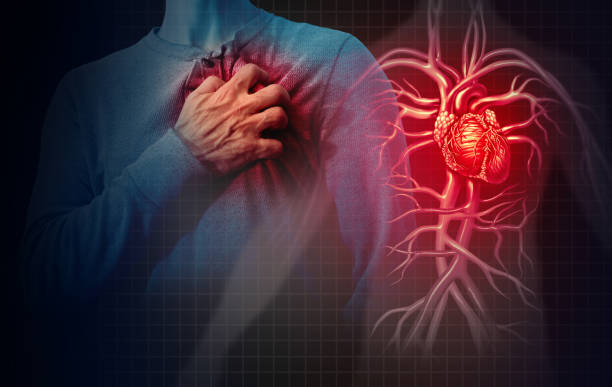Chest pain is an alarming sign that can cause you to wonder if you’re experiencing an attack on your heart or simply heartburn. Although both may cause pain in your chest, both come with distinct causes and treatments. Knowing the distinction between heartburn and an attack can assist you in seeking the appropriate medical treatment and avoid any severe complications.
In an exclusive interview with the team that runs Onlymyhealth’s editorial, Dr. Mohit Tandon, Consultant Non-Invasive Cardiologist Fortis Escorts Hospital, Okhla -New-Delhi, explains the distinction between heartburn and heart attack. This is what he shared with us.
What exactly is heartburn?
Heartburn is one of the most common symptoms of gastroesophageal reflux disease (GERD), which is also known as acid reflux. GERD is a condition that occurs when the stomach’s acidic contents change their flow and travel upwards into the esophagus, which acts as a connection between the mouth and the stomach. This may cause irritation to the Oesophagus’s lining and cause a burning feeling in the chest. Usually, this happens when you eat or lie down. In some cases, acid may be able to reach the mouth and throat and cause the mouth to taste bitter or sour.
Heartburn isn’t a major problem in the majority of cases and can be managed through lifestyle changes and prescription medicines. However, severe or frequent heartburn could be an indication of a more serious issue that could be a sign of an ulcer, hiatal hernia or esophageal cancer. It is, therefore, essential to consult a physician in the event that your heartburn does not improve after a few home remedies or if you experience other symptoms, including difficulties swallowing, weight loss, bleeding, or vomiting.
What is a heart attack?
Heart attacks, which are also referred to as a myocardial infarction is a serious medical emergency that happens when any or all coronary arteries that provide oxygen and blood for the muscle of your heart get blocked. It can result in damage or destruction of the heart muscle and affect its functioning. A heart attack could be triggered by a variety of factors, including atherosclerosis (plaque accumulation inside the coronary arteries), blood clots, spasms in the coronary artery, or the use of cocaine.
Heart attacks require immediate medical attention in order to restore oxygen flow back to your heart. This will avoid any further injury or even death. The treatment could include drugs that include the aspirin and nitroglycerin anti-clot drugs, or even procedures like angioplasty (opening the artery that is blocked with balloons or stents) and an operation called coronary bypass (creating a new pathway to allow blood flow around the blocked coronary artery).
How can you tell the difference between heart attack and stomach pain?
Heartburn and heart attack may exhibit similar symptoms, like chest discomfort or pain. But, there are distinct characteristics that could make it easier to distinguish these two conditions:
The location of pain
Heartburn is usually accompanied by discomfort in the upper or middle portion of the chest, and a heart attack generally creates pain on the middle or left side of the chest.
The quality of the
Heartburn typically causes burning sensations that be temporary or recurrent depending on eating or body posture and a heart attack is usually accompanied by a tension, tightness, or squeezing sensation which can last for a few minutes or even longer.
Radiation of pain
Heartburn typically does not extend to other areas of the body, whereas an attack of heart may spread into the arms, shoulders or neck, jaw or back.
Other signs
Heartburn could cause bitter and bitter flavor in your mouth. vomiting of acid or food, or difficulty swallowing. the symptoms of a heart attack can be caused by breathlessness, nausea, dizziness, sweating, vomiting, or fainting.
If you are unsure If you are unsure, seek medical advice
If you’re not sure whether the chest pain you are experiencing is the result of an attack or a stomach ulcer, it’s best to avoid the risk and seek medical attention immediately. Don’t ignore the symptoms or attempt to diagnose the cause. In the event of delay, treatment may result in serious harm to your health and life.
A few tips to help you minimize or prevent the risk of having heartburn and a heart attack are:
-
- Avoid drinks and foods that can trigger acid reflux, like spicy foods or fatty food items coffee, citrus fruits, chocolate or alcohol.
- Take smaller, more frequent meals rather than large ones.
- Do not lay down or bend your back too soon after having eaten.
- The bed’s head about six inches (15 cm) to stop acid from returning to the oesophagus.
- Stop smoking and stay away from exposure to second-hand smoke.
- Maintain an ideal weight and train often.
- Reduce stress levels and learn relaxation techniques.
- Manage your cholesterol, blood pressure as well as blood sugar level.
- Use the prescribed medications recommended by your physician to treat any conditions that could raise your chances of developing heart disease.
- Keep in touch with your physician regularly and notify them of any symptoms that are getting worse or new.

